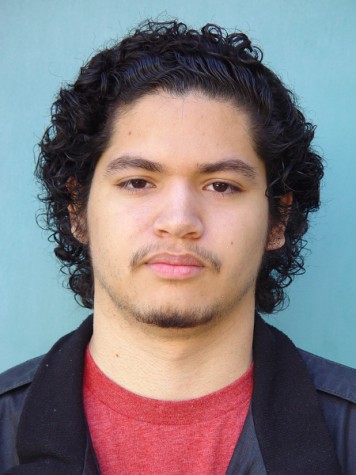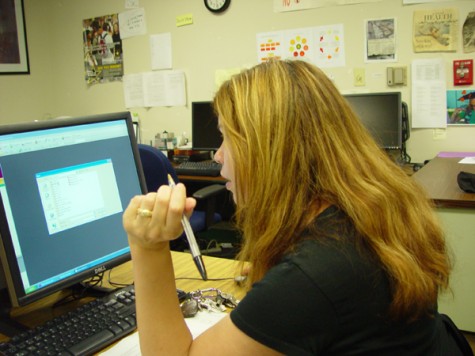In a week when the U.S. boycotted a U.N. meeting that the Iranian president used as a forum to attack Israel, Badi Badiozamani appeared on campus to talk about the rich history of the land once known as Persia.
The humanities/social science Lang Lecture Series, which is held once a year, was presented Thursday in Kreider Hall with speaker Badiozamani, founder and executive director of the Center for East-West Understanding, who was also available afterwards for book-signing.
The goal of the lecture was to inform students, faculty and staff about the thousands of years of Iranian history and its contributions to world civilization.
Badiozamani spoke about the founder of the Persian Empire, Cyrus the Great, and how when Cyrus encountered new countries, there was respect between different people, religions, languages and cultures.
According to a message on an ancient cylinder, which now resides in the British Museum, Cyrus once said, “When I entered Babylon, I did not allow anyone to terrorize the land. I kept in view the needs of Babylon and its sanctuaries to promote their well-being.. I put an end to their misfortune.” Babylon is in what is now called Iraq.
That message was the first declaration of human rights, according to Badiozamani. In addition, the civilization of the Persian Empire was so advanced that there were even laws for animals, the environment and even unemployment benefits.
“Any person who was either fired from his or her job [or] was finished, would get at least three months worth of salary,” Badiozamani said.
When the lecture concluded, Badiozamani apologized for not having enough time to give a full presentation or to answers questions.
“There’s so much information that I wanted to share with you,” Badiozamani said. “I had such a terrible time because I had to at least edit and re-edit my notes five times to shorten them as much as possible.”
Some of those edits perhaps led to the exclusion of the discussion on current U.S. and Iranian relations, which have collided recently.
On April 20, Mahmoud Ahmadinejad, Iran’s president,prompted a walk-out of some delegates during a U.N. anti-racism conference held in Geneva, a worldwide center for diplomacy and international cooperation in Switzerland, where he stated that Israel was the “most cruel and repressive racist regime.”
Ahmadinejad’s half hour speech resulted in about 40 diplomats from Britain and France and other European Union countries leaving the room. He requested worldwide harmony in the fight against racism and then said the U.S. and Europe helped establish Israel after World War II at the expense of Palestinians.
Eight governments in the west, including the U.S., had already pulled out of the Durban Review Conference in Geneva.
However, what Badiozamani did have time to discuss in his lecture was the ancient history of Iran. Pre-historic paintings were shown dating back from 40,000 to 65,000 B.C. He then spoke of organized settlements in the world.
“Some of the most organized settlements in the world have been found in Iran dating back to 8,000 years B.C.,” Badiozamani said. “The Achaemenid Dynasty, which lasted over 230 years, created not only the first great empire recorded in history, but [also] the first civilization.”
Later in the Iranian history, the Sasanide Empire was established. They were in constant turmoil with the Eastern Roman Empire and since war costs money, both empires taxed their own people, almost to death.
“The end of both [empires] came from an unexpected source,” Badiozamani said. “The desert of Arabia.. The Arabs invaded the region and forced Arabic language on every single person.”
According to Badiozamani, there were no less than 33 wars between the Persians and the Arabs.
Persian libraries were burned alongside thousands of books, but people continued to speak Persian (or Farsi, as natives call it) inside their homes for a period of about 200 years to maintain their language as there was no literacy in Persian available at the time.
The revival of the Persian language was credited to Ferdowsi (935-1020 A.D.), who spent 30 years of his life composing 60,000 versus of poetry in Persian.
Many years passed by, and Iran was faced with yet another hardship.
“The Mongols imposed their destructive presence on China, India, Persia and Russia,” Badiozamani said. “Not surprisingly, these invaders were also exposed and affected by Persian’s devotion to culture. They [Mongols] became civilized. They started building libraries.”
More recently, in World War II, public attention started to focus in on Iran. In December 1943, the world heard of the historic Tehran Conference where Roosevelt, Stalin and Churchill met. Afterwards, the 1979 revolution led to something called the “brain drain,” which was essentially the departure of many Iranians from Iran.
When the lecture concluded, Badiozamani was involved in a brief book signing session which was held in the San Rafael Building foyer. His book,”Iran and America: Rekindling a Love Lost,”was available for $10.
Badiozamani said that it took him about four years to write his book and he mentioned one source of his who was very important to him.
“We used to have a very good retired historian from Iran, Professor Armajni, and we used to have history classes in my house,” Badiozamani said. “We would ask him to come on Sunday mornings, and we would gather together like 20 to 25 people. We were very close friends and I used his notes.”
Dr. Velores Lang, who was in attendance at the presentation, is a retired dean of letters, arts and sciences. In 2001, she started the Lang Lecture Series, which brings well-known guest speakers to campus each year.
Concerning whom the speakers are each year, Lang said, “I ask for recommendations from various people and I look at the World Affairs Council speakers. I look at authors and find out if anyone is speaking in the area.
“We’ve had L.A. Times reporters, we’ve had three best-selling authors, we’ve had a number of political and economic figures and we’ll probably have more of those,” Lang said.
Badiozamani, himself, is a prominent political figure. Having a master’s degree in public administration and a doctorate in political science, he has served on California Governor’s Joint Venture Advisory Board, city of San Diego’s International Affairs Board where he was Vice Chairman and the head of Cultural & Economic Exchange Committee.
He presently serves on San Diego’s Small Business Advisory Board. He is the president of “Badi Communications” as well as “Badi Insurance Agency.”
He is also a member of the National Writers Union, PEN USA and American Translators Association. He has written numerous articles in Persian and English and has lived in California for more than 22 years.
Regarding the cost of the lectures, Lang said, “The money to pay for these speakers comes from contributions through our college foundation.”
Lang was first an English teacher, then the Division Chair of the language arts division before moving into administration and later a dean. After being on the staff of Glendale College for more than 30 years, she has left an annual lecture in her name.
For more information about Badiozamani, or to order his new book, call (858) 382-2200 or email him at [email protected].


